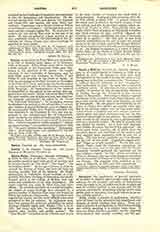

Castro y Bellvis, GUILLEN DE, Spanish dramatist, b. of a noble family at Valencia in 1569; d. at Madrid in 1631. He appears to have been early distinguished in the world of letters, for when a very young man we find him a member of the “Nocturnos”, a brilliant Spanish imitation of the “Academies” then fashionable in Italy. In early life he followed a military career. At one time he was a captain of cavalry; at another he had an important command at Naples, through the friendship of the viceroy, Count of Benavente. Returning to Spain, he gained the favor of the powerful Count-Duke Olivares, who gave him several posts that were lucrative as well as honorable. He also gained the friendship of the Duke of Osuna, who settled an annuity upon him. But if his literary ability won for him many influential friends, a haughty and sour temper, a discontented spirit, and great obstinacy soon lost for him whatever advantages he had gained. He was obliged then to turn to the theatre to earn a painful subsistence as a dramatic writer. He died in poverty and was buried by charity. As a lyric and dramatic poet Guillen de Castro had few if any superiors. He wrote some forty comedies, all of which show the inventive genius and patriotism of the author, and they enjoyed great popularity both in and out of Spain. The best known probably are “Las Mocedades del Cid” in two parts, “Enganarse enganando”, and “Pagar en propia moneda”. To the first mentioned Castro owed his European reputation, for it is from the first part of this play that the French dramatist Corneille gathered the materials for his own brilliant tragedy “Le Cid”, which, according to Ticknor, did more than any other drama to determine for two centuries the character of the theatre throughout Europe. His comedies were published in two parts at Valencia., in 1621 and 1625 respectively.
VENTURA FUENTES

